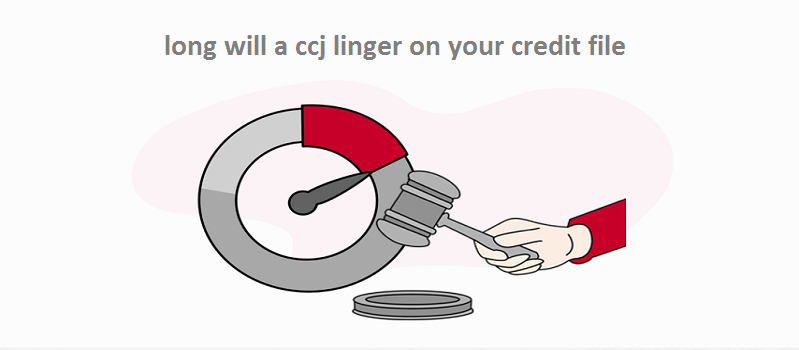Everyone sometimes needs to obtain some kind of financial product. You, too, must have applied for some like a loan, credit card, etc. Due to today’s high cost of living these days, loans are one of the most popular options.
Before giving the loan, the company has to see whether you are eligible to pay back the borrowed funds or not. In simple words, a lender can take the risk only when it knows the fund bearer has a dependable repayment capacity. Hence the need for credit check is must.
What is a credit check?
A credit check is a method of studying financial history. The finance companies check your creditworthiness before approving any financial product. For this, they obtain your credit report from credit reference agencies. These agencies provide a report on your current obligations and overall personal finances.
The loan companies use the report to see how responsible you are in your financial life. It shows how many current obligations you have, how many of them you have paid on time, how many are pending and if there is any delay or default. The better your report is, the higher the credit score. The higher the credit score, the faster the loan approval.
What is the role of credit score in credit checks?
A credit score is a numerical indication of your financial life. It shows whether you are managing your personal finances successfully or not. If you manage all your obligations successfully, then your credit score will be high. If your credit score is low, then your obligations will be pending.
By just looking at your credit score, clarity about current and past financial situations can be gained. For example, if County Court Judgments (CCJs) have been issued against you, your credit score will fall in the Very Poor category. The rating in this category is usually about CCJs.
A credit score, also called credit rating, has five categories. Excellent 961 – 999, Good 881 – 960, Fair 721 – 880, Poor 561 – 720, very poor 0 – 560. You can understand now how rating matters.
What are hard credit checks and soft credit checks?
There are two types of credit checks: soft credit checks and hard credit checks. Both have different features. The comparison given below will tell you the difference between these two.
| Hard Credit Check | Soft Credit Check |
| Hard credit check leaves footprint on your credit report. It affects your credit score. | Soft check does not leave a footprint on your credit report. |
| It provides a detailed look into your financial history. A finance company can understand your personal finances in every nook and cranny. | It gives only an initial look of your personal financial history. This may leave many other details unrevealed. |
| When a finance company does the credit check it is hard credit check. However, few lenders offer soft check facility. | When you check your own credit report, it is a soft check. For a hard credit check, you need to pay a nominal fee to access the complete report. |
| A hard credit check happens when you apply for loans, credit card, mortgage, pay monthly bill or apply to a utility company. | Finance companies can do soft checks as part of identity checks. You can soft check to compare different loan deals. |
Which one is significant? Hard check or soft check?
Now, you must have understood what a credit check is and the difference between a hard check and a soft check. You make many types of financial decisions throughout your life, and all those decisions affect your personal finances.
But sometimes, one does not need to go deep into one’s financial history. For example, a soft credit check is also fine for an identity check, while a hard credit check is vital for a mortgage.
Any credit check is helpful for one important reason if you have a poor credit rating. When you improve your credit score, it shows in your credit report and affects your credit score in a good way. Only the check, whether soft or hard, can tell you have worked well on your finances.
The hard check tells when you started paying obligations on time or when you settled a loan. The soft check may not go into the details, but it shows the improvement through the increased credit score.
There should be a place from where one can know if your financial decisions have made you financially responsible or not. A credit check is the process by which all this can be found out. It is unnecessary that if someone’s credit score has deteriorated, it cannot be improved.
A credit check reveals whether your financial condition has improved or worsened. This is just a performance report. You can always improve your current situation. It’s something in your complete control.
Why do you need to check your credit report regularly?
It is not necessary to check your credit report only when you apply for a loan, credit card, or financial product. You should do it every 2 to 3 months, and there is a big reason for doing it.
Sometimes, credit reference agencies mistakenly include incorrect information in your credit report. For example, a loan that you never took or a loan that you have paid off but is not visible in your credit report to date. Due to such mistakes, many people even lose their jobs. Nowadays, there are many sectors where the credit report of the employee is checked before giving a job.
Therefore, whether you apply for a loan or not, regularly check your report on your own. Don’t forget to study it thoroughly. If you find any mistake, contact the credit reference agency and tell it about it. Doing this will update your financial records at the right time.
Don’t let any tiny, silly mistake affect your career and financial future. In today’s challenging lifestyle, it is important for us to take care of every aspect of our financial life. Sometimes even a small financial flaw can leave a bad impact on our life a lot.
Conclusion
Now, you must have understood the importance of credit checks. Next time, whenever you approach a loan or finance company, you will know how important a role credit check is about to play in the approval decision. Also, from time to time, check your credit report yourself. It will help you to make the right decisions for a better future.








